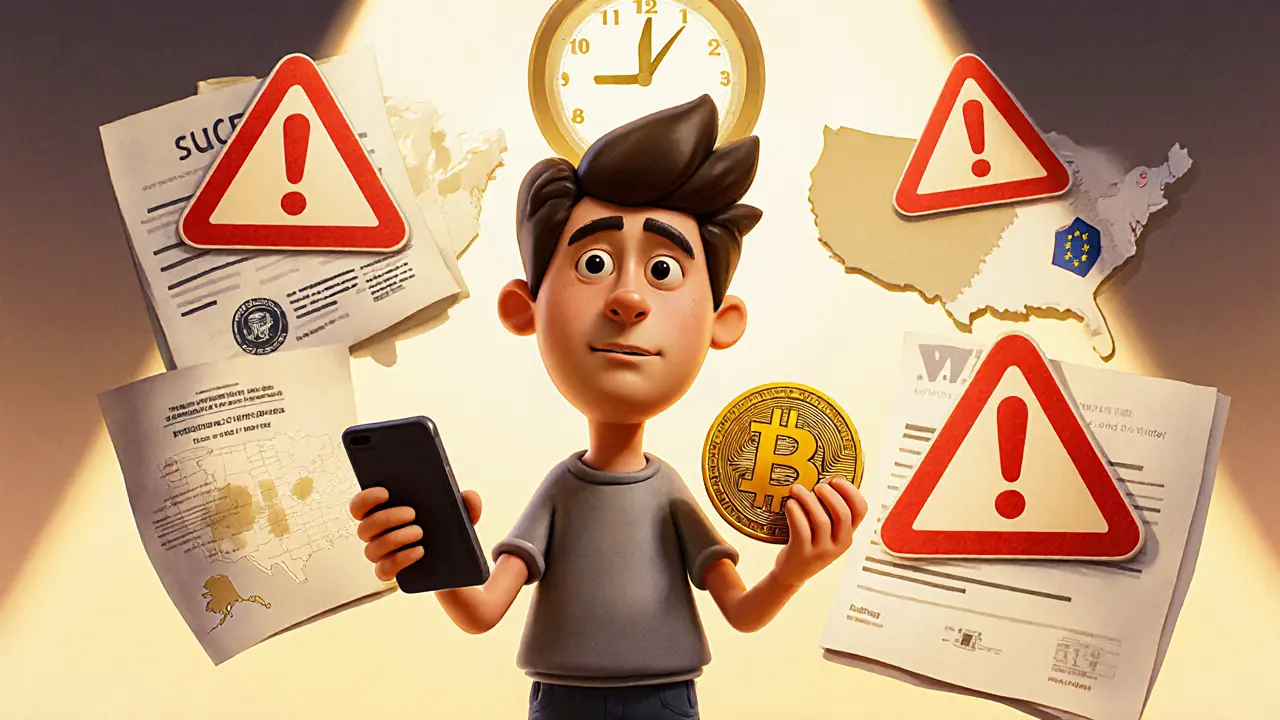Global Crypto Rules: What You Must Know About International Crypto Rules and Enforcement
When it comes to global crypto rules, the patchwork of laws that govern how countries treat cryptocurrency. Also known as international cryptocurrency regulation, it’s not a single system—it’s a dozen conflicting systems, each with its own penalties, loopholes, and surprises. One country treats Bitcoin like property, another taxes it like income, and a third jails you for mining without a permit. There’s no global authority telling everyone what to do. Instead, you’ve got the U.S. seizing $17 billion in crypto, Angola banning mining to save power, Portugal letting you hold Bitcoin tax-free, and Russia making unlicensed exchanges a criminal offense.
These rules don’t exist in a vacuum. They’re shaped by crypto seizure, when governments take control of digital assets they believe were used illegally. This happens everywhere—from the U.S. Treasury freezing wallets linked to ransomware, to El Salvador’s Chivo wallet collapsing under political pressure. It’s not just about crime. It’s about control. When a country sees crypto as a threat to its currency or banking system, it moves fast. And if you’re using an unregulated exchange like Garantex or Blockfinex, you’re already on the wrong side of that line. Then there’s crypto sanctions, official bans on crypto use by specific nations or groups. In 2025, Cuba faced tighter U.S. restrictions while Syria saw sanctions lifted—meaning the same crypto wallet could be legal in one country and a felony in the next. These aren’t theoretical. People have been arrested for trading on platforms banned by OFAC. Even if you’re not a criminal, using a sanctioned exchange can get you flagged, frozen, or worse. And don’t forget crypto tax laws, how governments track and charge you for holding or selling digital assets. Portugal lets you hold Bitcoin for over a year and pay zero tax. The U.K. and U.S. treat every trade like a taxable event. If you’re moving money across borders, you’re not just trading crypto—you’re navigating a minefield of reporting rules.
What ties all this together? Global crypto rules aren’t about technology. They’re about power. Who controls money? Who gets to decide what’s legal? And who gets punished when you break the unwritten rules? The posts below show you exactly how this plays out: from exchanges banned for Russians, to mining gear seized in Angola, to airdrops that are just scams wrapped in legal gray zones. You’ll see which countries are locking down crypto, which are betting on it, and which are just trying to catch up. No fluff. No theory. Just what’s real, what’s risky, and what you need to know before you trade, hold, or move your crypto across borders.
Staying Informed About Changing Crypto Regulations Worldwide
Crypto regulations are changing fast in 2025-with the U.S. easing enforcement, the EU enforcing MiCAR, and Asia leading innovation. Know what’s legal, where, and how to stay compliant without getting caught in the crossfire.
